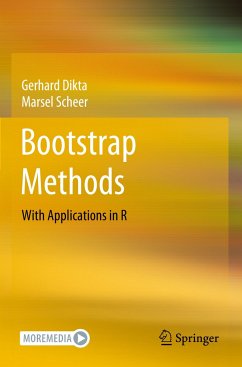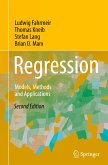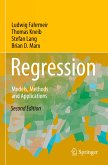This book provides a compact introduction to the bootstrap method. In addition to classical results on point estimation and test theory, multivariate linear regression models and generalized linear models are covered in detail. Special attention is given to the use of bootstrap procedures to perform goodness-of-fit tests to validate model or distributional assumptions. In some cases, new methods are presented here for the first time. The text is motivated by practical examples and the implementations of the corresponding algorithms are always given directly in R in a comprehensible form. Overall, R is given great importance throughout. Each chapter includes a section of exercises and, for the more mathematically inclined readers, concludes with rigorous proofs. The intended audience is graduate students who already have a prior knowledge of probability theory and mathematical statistics.
Hinweis: Dieser Artikel kann nur an eine deutsche Lieferadresse ausgeliefert werden.
Hinweis: Dieser Artikel kann nur an eine deutsche Lieferadresse ausgeliefert werden.








